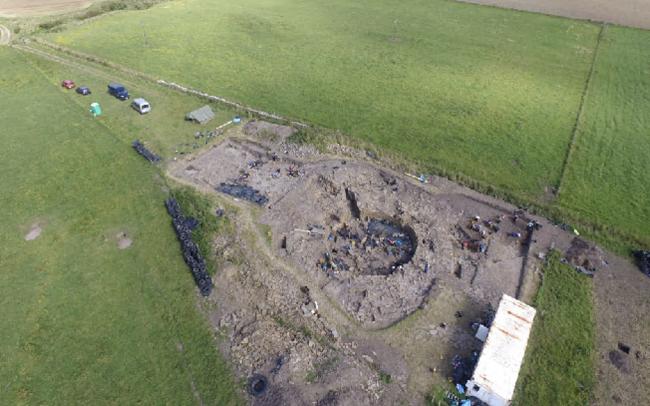
The Cairns site, at South Ronaldsay.
Supplied by Martin Carruthers, Lecturer in Archaeology at the Archaeology Institute of the University of the Highlands and Islands in Orkney
Supplied by Martin Carruthers, Lecturer in Archaeology at the Archaeology Institute of the University of the Highlands and Islands in Orkney
As celebratory feasts go, the menu choices do seem to have been rather limited.
However, new research into an Orkney Iron Age site suggests it was the scene of a massive prehistoric party, which saw the guests tuck into an astonishing amount of limpets and periwinkles.
More than 18,600 shells were found in a pit at The Cairns site, at South Ronaldsay.
Now radiocarbon dating technology has shown the pit was used in the fifth or sixth century AD, apparently to cook the shellfish before they were handed out to hungry guests. The shells – all 18,637 of them - were then put carefully back into the pit, perhaps as cooks and guests tidied up after their get-together.
Experts believe the shellfish supper was a single event, presumably attracting a high number of invitees with a hearty appetite for limpets and periwinkles.
Read the rest of this article...
No comments:
Post a Comment
Note: Only a member of this blog may post a comment.